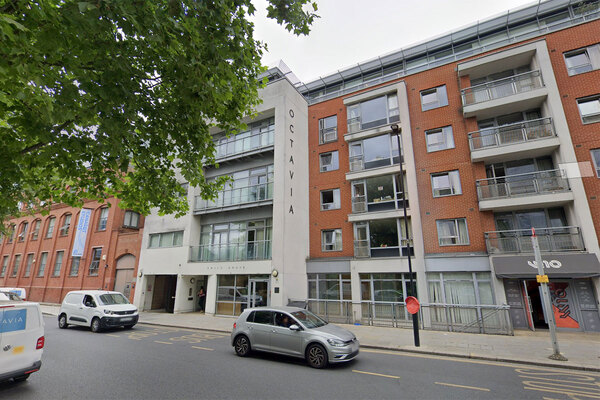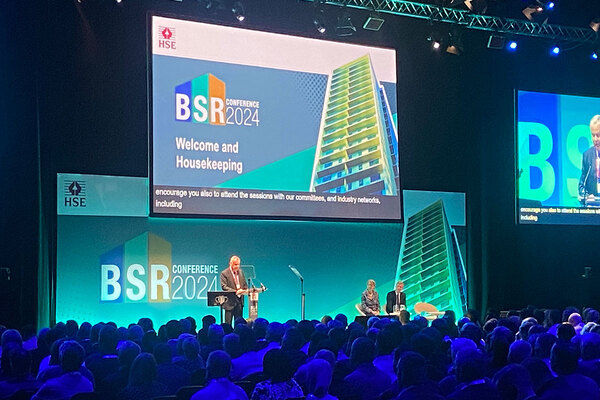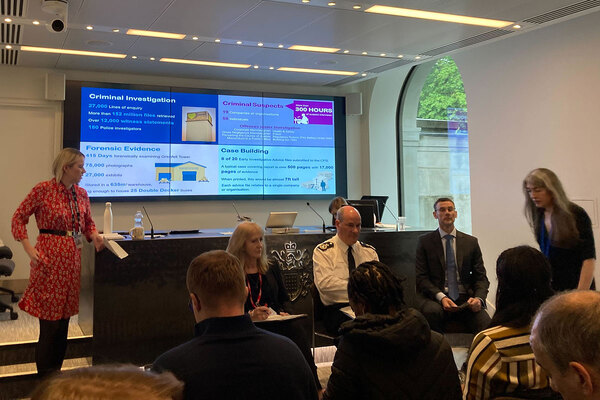You are viewing 1 of your 1 free articles
We want to build a culture of assurance among Scottish social landlords
The Scottish Housing Regulator is considering how best to set the direction of regulation for the next five years. Chair George Walker explains more
I’m a product of social housing because I was lucky enough to grow up in great quality social housing in the West of Scotland.
It gave me life chances: to grow up in a warm, safe home; to do well in school; to go to university.
It set me on a path that led to me being chair of the Scottish Housing Regulator.
So, I strongly believe it’s vital we have well-run and properly regulated social housing in Scotland.
Last month we published a discussion paper on the future of social housing regulation in Scotland.
We’ve looked back on the past five years, and it’s remarkable how the world has changed. And that’s no less the case for the world of social housing.
The new context for social landlords is a riskier and more uncertain world in which they are having to manage the impact of welfare reform, developments in health and social care, Brexit, diversification and ever more complex treasury management.
At the same time, social landlords are facing new challenges to keep rents affordable, keep tenants safe, and contribute to ambitious Scottish Government targets for new homes.
“We do have to recognise the increasing number of serious governance cases.”
There are many positives in social housing in Scotland, not least landlords’ strong performance across the Scottish Social Housing Charter outcomes and standards.
Nine out of 10 tenants are satisfied with the overall service their landlord provides.
But alongside that we do have to recognise the increasing number of serious governance cases in housing associations.
We’ve had to use our statutory intervention powers in nine housing associations over the past three years. We are currently dealing with serious governance issues in around 20 housing associations; that’s more than one in eight.
We are also engaging with 20 out of 32 local authorities, with much of that engagement focused on homelessness.
That’s all important context for our review of the regulatory framework.
Through our review we’ll be setting the direction of regulation for the next five years. Our approach needs to be effective and sustainable, enabling us to do the right things, in the right way, at the right time.
“We want to build on landlord self-assurance and encourage a culture of self-awareness, assurance and transparency.”
The single broad theme of assurance underpins much of what is in the discussion paper.
When we speak about assurance, we mean a landlord knowing that it is doing the right things, in the right way, at the right time.
It’s about landlords knowing that they are able to give tenants and other service users the best possible homes and services at a price they can afford.
This is about landlords assuring first themselves, then their tenants, and last the regulator. And I purposely put us last, as this is principally about board and committee members getting the assurance they need. If they are getting the right assurance about the right things, we will be able to take great comfort and assurance from that.
When we’ve had to intervene we’ve often found that the housing associations were not meeting Regulatory Standards.
Worryingly, too often, the boards or committees did not know that they were not meeting the standards.
So, we want to build on landlord self-assurance and encourage a culture of self-awareness, assurance, and transparency in all landlords.
We are proposing that each landlord produces and approves an Annual Assurance Statement.
Through this, each landlord will confirm that it is satisfied that it complies with regulatory requirements or set out its plans to improve where it doesn’t.
We want this to be a helpful tool for boards and committees and a focus for getting the assurance that they are meeting the regulatory standards and other key obligations, such as duties around homelessness and tenant safety.
The Assurance Statement should be viewed as an end point for the work that each landlord will do to assess its own performance and compliance.
We will use the Annual Assurance Statements in our risk assessment for both housing associations and local authorities.
“Worryingly, too often, the boards or committees did not know that they were not meeting the standards.”
Our sole objective is to safeguard and promote the interests of tenants and others who use the services of social landlords.
I know that getting the very best for their tenants and for their communities is what motivates social landlords.
So, while we may have different roles, as regulator and landlords I strongly believe we share the same goal.
It’s the leadership of landlords’ boards and committees, along with excellent, effective governance and good management that defends their organisations against the risks that can break a landlord.
This is also what creates the environment that delivers for tenants, homeless people and others. We want the regulation of social housing in Scotland to support those outcomes.
So, please get involved in the discussion over the coming weeks. We very much want to hear the views and ideas of everyone who values social housing.
George Walker, chair, Scottish Housing Regulator











